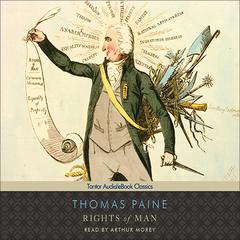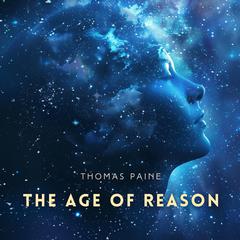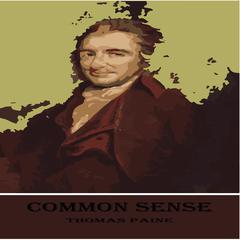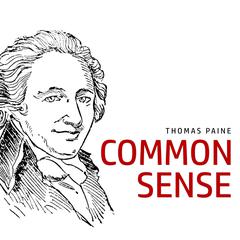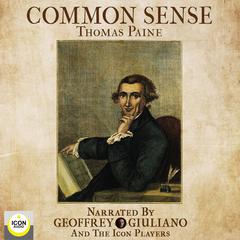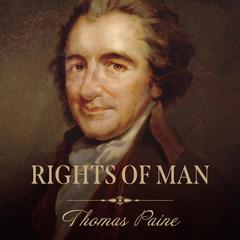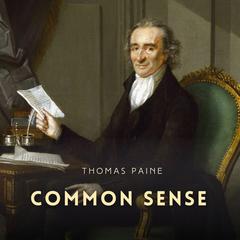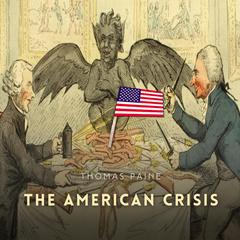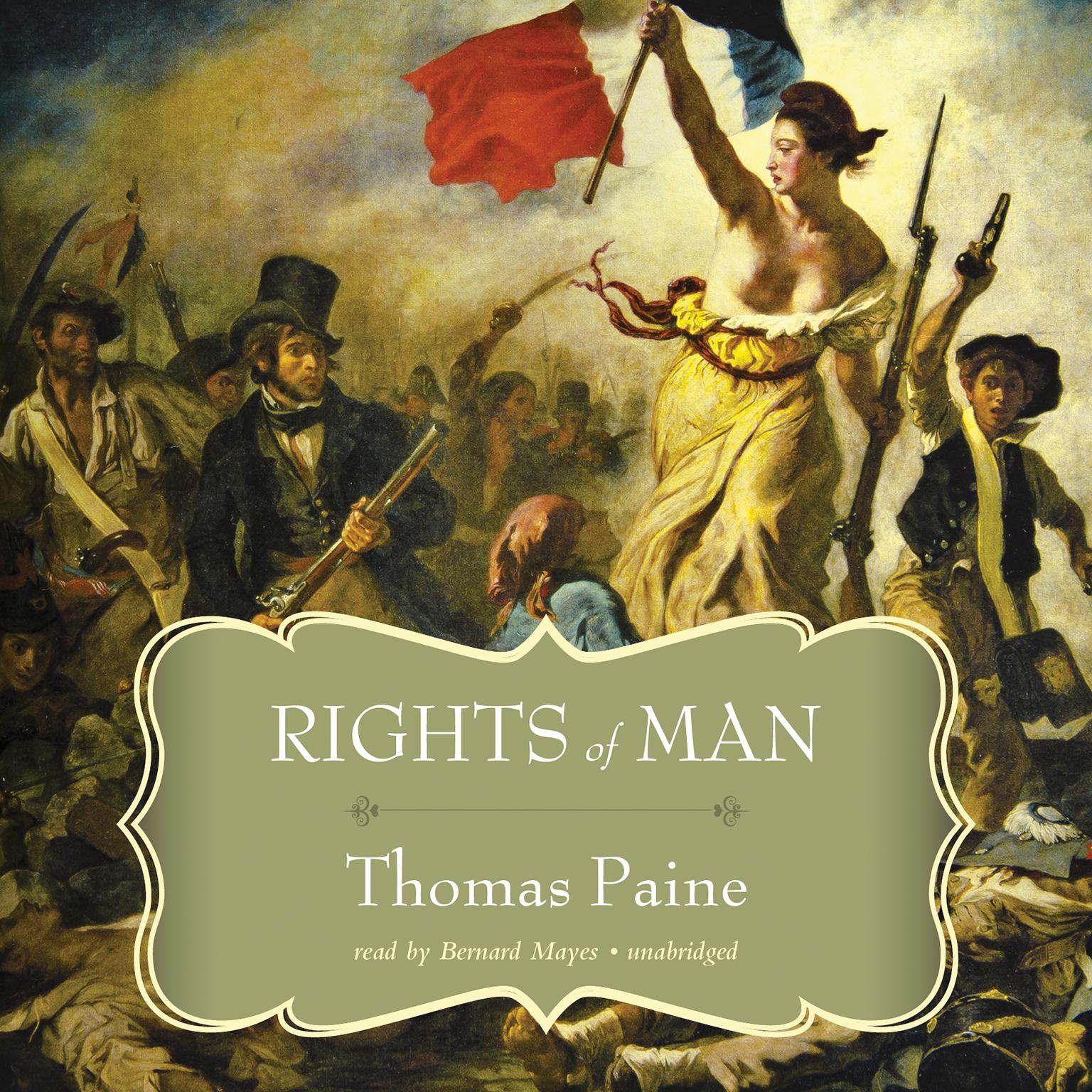 Play Audiobook Sample
Play Audiobook Sample
Rights of Man Audiobook
 Play Audiobook Sample
Play Audiobook Sample
Quick Stats About this Audiobook
Total Audiobook Chapters:
Longest Chapter Length:
Shortest Chapter Length:
Average Chapter Length:
Audiobooks by this Author:
Publisher Description
Written in the late eighteenth century as a reply to Edmund Burke’s Reflections on the French Revolution, Thomas Paine’s Rights of Man is unquestionably one of the great classics on the subject of democracy. A vindication of the French Revolution and a critique of the British system of government, it defended the dignity of the common man in all countries against those who would discard him as one of the “swinish multitude.”
Paine created a language of modern politics that brought important issues to the working classes. Employing direct, vehement prose, Paine defends popular rights, national independence, revolutionary war, and economic growth—all of which were considered, at the time, to be dangerous and even seditious issues. His vast influence is due in large measure to his eloquent literary style, noted for its poignant metaphors, vigor, and rational directness.
Download and start listening now!
"Although I do not have many good things to say about Hitchens, one compliment I must pay to him is to give much esteem to his biography writing. Hitchens never seems to miss small historical facts that bridge on fables, and thus, makes any reading concerning historical personalities that much more interesting to read about. This book is especially unique in its recollection of feuds, arguments, and conflicts that followed Paine throughout his life. The writing in this short book is concise yet dense. Hitchens does a superb job summarizing main points that Paine emphasized throughout his work along with depicting who and what may have influenced his thought. Hence, the reader gets an equal dose of information, theory, and historical context. Foremost among such example is the details surrounding Paine's travels, and how the political situations of any given country affected his perspective, and the most famous feuds that served as catalysts for his revolutionary thinking. One may recall here Paine's notorious feud with the father of ideological Conservatism Edmund Burke - a feud which drove much of Paine's responses in his Rights of Man. All in all, the book is a quick read but is filled with Hitchen's penchant for quirky anecdotes, brilliant analysis, and limitless intelligence - he never backs away from making apt philosophical and/or political comparisons and thus demonstrates his commandment of the subject matter. This is done humbly but effectively, all with due respect for Thomas Paine, which is the reason why I relish his historical/biographical writing that much much."
— Eric (4 out of 5 stars)
Quotes
-
“I know not whether any man in the world has had more influence on its inhabitants or affairs for the last thirty years than Tom Paine.”
— John Adams, 1805 -
“Thomas Paine earned lasting fame as one of history’s most powerful and persuasive writers…He wrote robust, plain, emotionally intense English that crystallized thought and galvanized into action the common people of America, Great Britain, and France…His Rights of Man, pleading for natural rights and republican principles, won for him admirers throughout the Western world.”
— Masterpieces of World Literature
Rights of Man Listener Reviews
-
" Good short biography of Paine. Made me interested enough in his life and works to check out a couple of the recommended biographies from the library. Perhaps it's because I had just read Hitchens' "god is not Great" that I felt he had a little too much of an agenda in this book. Then again, Paine was one of the free-thinking luminaries of his time, and Hitchens' certainly doesn't idolize him, pointing out his flaws in that regard as well. "
— Ben, 2/18/2014 -
" One of the Young Women I mentor at church was bumped up to AP English from the regular English track. Her first AP assignment was to read this book and write an analysis using specific templates. She was terrified and so I offered to read the book as well and hold her hand while she wrote the essay in hopes that she would realize as only Bob the Builder AND Barack Obama say best, "Yes, we can!". I did a fairly thorough reading of the first half of the book and a not-so-thorough reading of the second half. I have to admit, having the advantage of 20/20 hindsight made it difficult to read this. Paine wrote this as a response to Edmond Burke's pamphlet "Relections on the French Revolution". Burke was originally cautiously optimistic about the revolutionary actions in France, but quickly realized what was really going on and became an outspoken critic of the revolution. Paine thought Burke was an idiot for not wholly supporting the revolution and this book is his reasoning. Needless to say, Burke was 100% right and Paine just looks like a fool. I was going to be kind and give Paine 2 stars because of his role in the American Revolution, but then I read this, "By the universal economy of nature it is known, and by the instance of the Jews it is proved, that the human species has a tendency to degenerate, in any small number of persons, when separated from the general stock of society, and intermarrying constantly with each other." Can you believe that?? Paine was trying to compare intermarrying aristocrats in Europe with the Jews! That is just plain ugly bigotry, so now I can only give him one star. The sad part of this whole project is that the highschool kids were not required or asked to read any of Burke's pamphlet on the French Revolution. When I asked my mentee what she knew about the French Revolution, she didn't even know what I was talking about. The kids were not given the proper tools for this project. Not only are the kids missing out on some outstanding writing and reasoning, I'm curious how they are expected to give an even half-way decent analysis of Paine's writing with only half the story. This assignment has furthered my conviction that not only do the public schools have a morally bankrupt political agenda to advance, they are doing a piss poor job of actually educating. I feel sorry for the teachers who are caught in the middle of this garbage. When the time comes, my kid will read Burke along with his Paine! "
— Olivia, 2/11/2014 -
" Fascinating account of a misunderstood figure integral to our history. And Hitch is erudite as always. "
— Lauren, 2/8/2014 -
" the rights of men perfectly reflects the mastery of prose by deceased author Christopher Hitchens. he argues that Paine, true revolutionary to his core, proposed emancipation of men, and even advocated for abolition of slavery. a very good read "
— Daniel, 2/3/2014 -
" Outdated. Only read because it was on that 30 before 30 list I'm determined to finish "
— Phil, 2/1/2014 -
" My Grandmother bought me this and it was very interesting - the sort of book you feel you should read but don't usually get around to! Very forward thinking and as relevent today as it was in 1791. Although I can't say I agreed with all of it. "
— Fiona, 1/28/2014 -
" Read Thomas Paine and you get a sense of what a complete failure the American experiment has been--how utterly it has failed to live up to its ideals, hue totally it has been subverted by reactionaries. "
— Ralph, 1/13/2014 -
" Christopher Hitchens was an admirer of Paine's and this short book is a great introduction to Paine's life and ideas. With "Common Sense" Paine wrote one of best selling books in history but all the money went toward buying supplies for Washington's troops. Paine loathed tyranny and denounced hereditary monarchy and the church as instruments for oppressing the potential of the common man. He also hated slavery and the deplorable treatment of Native Americans. His commitment to freedom was total. "
— Mark, 1/6/2014 -
" I love to read Christoper Hitchens because he writes with passion while carefully presently solid evidence for his arguments. This little book is a great introduction to Thomas Paine and his battle of ideas and words with Edmund Burke. I was surprised to learn how completely Paine foreshadows the development of liberal democracy with its foundation of using wealth to make life more bearable for all of the citizens of a nation. He wrote about support programs for the young and pensions for the old. Paine influenced the liberal changes in three nations with his writings. Excellent read. "
— Losososdiane, 12/31/2013 -
" Informative, witty summary of Paine's life and thought; the author obviously cares a great deal about the subjects he discusses. You learn a lot in a short book. "
— Sally, 12/29/2013 -
" Beautifully written account and argument about some of the most important yet forgotten writings. Both Hitchens and Paine I will gladly adopt as Americans. "
— Jarred, 12/29/2013 -
" love this author. a heady book but a good history lesson. "
— Huxnbec, 12/20/2013 -
" A brilliant overview of Rights Of Man and the life of Tom Paine from a brilliant author. "
— Tim, 12/14/2013 -
" Hitchens at his best; Like Descartes Bones by Russell Shorto, it reviews the legacy of a great among modern thinkers. I have read the Thomas Paine book also but Hitchens' history/biography puts Paine into context. He was a controversial and uncompromising thinker. "
— Marc, 12/13/2013 -
" Very Interesting and accessible. "
— Chris, 9/3/2013 -
" Good for anyone looking to brush up on logical fallacies and to take a nice nap. "
— Alison, 6/21/2013 -
" I would suggest this only if you are a hardcore history or government buff. It was quite a chore to force myself through this one. "
— Joe, 6/7/2013 -
" Was familiar with Paine's role in the American Revolution but was interested to learn of his role in the French Revolution and more about "The Age of Reason". "
— Frank, 4/16/2013 -
" It is my Holy Book. "
— Ryan, 3/24/2013 -
" Glad to close this book. "
— Qing, 12/11/2012 -
" Hitchens writes about Thomas Paine's rights of Man book, how Paine wrote it, why he wrote it, what was the consequences of him writing it, and what experiences he had to write it. "
— Ramez, 10/23/2012 -
" perhaps the most amazing thing about this treastie on freedom is that it's dedicated to my favorite slave-owner, George Washington! "
— RK, 7/29/2012 -
" Paine's position on inalienable rights played a major role in the Bill of Rights being included in the Constitution. This work is as relevant today as when it was first written. An absolute Must-Read for anyone interested in freedom. "
— Steve, 6/4/2012 -
" Outdated tripe, IMO. For political students only. "
— Gavin, 6/1/2012 -
" It is interesting to read Paine's thoughts on government and the rights of the people and then compare what he wrote with the political life of the USA today. I think the poor man must be turning in his grave. "
— Nick, 4/17/2012 -
" A book still relevant for those with a passion for the politics of change in their immediate society. "
— Gary, 12/14/2011 -
" At a moment when our own administration has difficulty standing up for freedom of speech it's important to read (or re-read) Thomas Paine. Doing so through the eyes and boundless intellect of C. Hitchens cannot be recommended highly enough. "
— Craig, 11/22/2011 -
" Paine lasted 364 pages (Common Sense, RIghts of man) before giving in to the paternalistic tendency... and thus contradicting himself, if you ask me. "
— Joseph, 8/17/2011 -
" A decent analysis of Thomas Paine and his enduring legacy. It helps to have some historical knowledge since Hitchens doesn't spend much time putting things into context. "
— Todd, 8/6/2011 -
" Hitch is the man whatever he does, but this one was lost on me. Brilliant to be sure but I think he saved the meaning for his own mind. "
— James, 6/5/2011 -
" Outdated. Only read because it was on that 30 before 30 list I'm determined to finish "
— Phil, 4/28/2011 -
" Hitchens is a hack with an expanded vocabulary, nothing more. "
— Steve, 1/9/2011 -
" perhaps the most amazing thing about this treastie on freedom is that it's dedicated to my favorite slave-owner, George Washington! "
— RK, 11/25/2010 -
" Great stuff! Thomas Paine emerges as a real pioneer for the causes of liberty, justice and human rights. An intriguing character, but still very human. "
— Hanno, 5/2/2010 -
" Easier reading than the original. Part of a series: Books That Changed The World. "
— Mary, 10/27/2009 -
" Brilliant! <br/> <br/><u>Sidenote</u>: Alive today, the original T-Paine would horsewhip Glenn Beck, not endorse his idiocy. To wit, in <em>TROM</em> Paine supports progressive income taxation to support, among other things, healthcare for the poor. "
— Sean, 10/1/2009 -
" After reading this book, I care less than before reading it about Hitchen's thoughts about anything. Pompous, bombastic, self-absorbed and clueless. "
— Bill, 3/25/2009 -
" Paine lasted 364 pages (Common Sense, RIghts of man) before giving in to the paternalistic tendency... and thus contradicting himself, if you ask me. "
— Joseph, 3/11/2009 -
" A good introduction, biography, and commentary on the works of Thomas Paine. The only annoying thing was Hitchen's intermitten bashing of religion, which took a little away from an otherwise interesting book. "
— Upom, 2/16/2009 -
" A useful juxtaposition of two essential works on revolutionary history. "
— Andrea, 1/8/2009 -
" I would suggest this only if you are a hardcore history or government buff. It was quite a chore to force myself through this one. "
— Joe, 9/22/2008 -
" Outdated tripe, IMO. For political students only. "
— Gavin, 4/3/2008 -
" I'm re-reading this book in light of the current administration. I'm confident that Pres. Bush played "hookie" the week his college class read & discussed this book. <br/> <br/>everyone interested in politics & mankind should give this a go! "
— Toni, 11/2/2007 -
" Robespierre couldn't get 'em; and I know why. Paine was a Copperfield from the start : he walked right through the goddamn wall of china, no joke! "
— Joey, 5/7/2007
About Thomas Paine
Thomas Paine (1737–1809) was a pamphleteer, revolutionary, radical, liberal, intellectual, and one of the Founding Fathers of the United States. Born in Great Britain, he emigrated to America at the suggestion of Benjamin Franklin just in time to promote the American Revolution with his powerful, widely read pamphlet, Common Sense. Later, he was a great influence on the French Revolution. He wrote Rights of Man as a guide to the ideas of the Enlightenment. Despite an inability to speak French, he was elected to the French National Assembly in 1792. Regarded as an ally of the Girondists, he was seen with increasing disfavor by the Montagnards and in particular by Robespierre. He was arrested in Paris and imprisoned in December 1793; he was released in 1794. He became notorious with his book, The Age of Reason, which advocated deism and took issue with Christian doctrines. While in France, he also wrote a pamphlet titled Agrarian Justice, which discussed the origins of property and introduced a concept that is similar to a guaranteed minimum income. He remained in France until 1802, when he returned to America on an invitation from Thomas Jefferson, who had been elected president.
About Bernard Mayes
Bernard Mayes is a teacher, administrator, corporate executive, broadcaster, actor, dramatist, and former international commentator on US culture. He is best known for his readings of historical classics.






